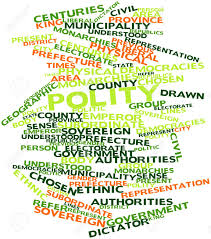Memorising Techniques – Indian Polity – Fundamental Rights – W.B.C.S. Examination.
By Dipayan Ganguly, WBCS Gr A
Fundamental Rights
1. Right to Equality.Continue Reading Memorising Techniques – Indian Polity – Fundamental Rights – W.B.C.S. Examination.
Article 14-18
Article 14 (Equality before law):
Article 15 (Prohibition of discrimination on the grounds of religion, race, caste, sex or place of birth):
Article 16 (Equality of opportunities in matters of public employment):
Article 17 (Abolition of Untouchability):
Article 18 (Abolition of titles):
তাহলে মনে রাখার জন্য
Mnemonic- Law? DOUbT
2. Right to Freedom
Articles 19-22
Article 19 (Protection of certain rights regarding freedom of speech, etc.):
to freedom of speech and expression.
To assemble peacefully and without arms.
To form associations or unions.
To move freely throughout the territory of India.
To practice any profession or to carry on any occupation, trade or business.
Article 20 (Double Jeopardy, Protection in respect of conviction for offenses):
Article 21 Protection of life and personal liberty
Article 22 protection against arrest and detention in certain cases
তাহলে মনে রাখার জন্য
Mnemonic- Sau MRP? DJiye Life Imprisonment
3. Right against exploitation
Articles 23-24
Article 23 deals with the prohibition of traffic in human beings and forced labor.
Article 24 deals with prohibition of employment of children in factories, hazardous jobs etc
তাহলে মনে রাখার জন্য
Mnemonic- Traffic Hazard
4. Right to Freedom of Religion
Articles 25-28
Article 25 freedom of conscience and free profession, practice, and propagation of religion.
Article 26 freedom to manage religious affairs.
Article 27 freedom as to payment of taxes for promotion of any particular religion.
Article 28 freedom as to attendance at religious instructions or religious worship in certain educational institutions
তাহলে মনে রাখার জন্য
Mnemonic- Professor and Manager Taxed for Education
5. Cultural and Educational Rights
Articles 29-30
Article 29 protection of language, script, and culture of minorities
Article 30 right of minorities to establish and administer educational institutions like Madrasas
তাহলে মনে রাখার জন্য
Mnemonic- Conserve Madrasa
6. Right to Constitutional Remedies
Articles 32-35
Article 32 right to move to the supreme court for the enforcement of Fundamental Rights including the Writs of (i) Habeas corpus, (ii) Mandamus, (iii) Prohibition, (iv) Certiorari and (v) Quo warranto
Article 33- Power of Parliament to modify the rights conferred by this Part in their application etc Parliament may, by law, determine to what extent any of the rights conferred by this Part shall, in their application to,
(a) the members of the Armed Forces; or
(b) the members of the Forces charged with the maintenance of public order; or
(c) persons employed in any bureau or other organisation established by the State for purposes of intelligence or counter intelligence; or
(d) persons employed in, or in connection with, the telecommunication systems set up for the purposes of any Force, bureau or organisation referred to in clauses (a) to (c), be restricted or abrogated so as to ensure the proper discharge of their duties and the maintenance of discipline among them
Article 34- Restriction on rights conferred by this Part while martial law is in force in any area Notwithstanding anything in the foregoing provisions of this Part, Parliament may by law indemnify any person in the service of the Union or of a State or any other person in respect of any act done by him in connection with the maintenance or restoration of order in any area within the territory of India where martial law was in force or validate any sentence passed, punishment inflicted, forfeiture ordered or other act done under martial law in such area
Article 35- Legislation to give effect to the provisions of this Part Notwithstanding anything in this Constitution,
(a) Parliament shall have, and the Legislature of a State shall not have, power to make laws
(i) with respect to any of the matters which under clause ( 3 ) of Article 16, clause ( 3 ) of Article 32, Article 33 and Article 34 may be provided for by law made by Parliament; and
(ii) for prescribing punishment for those acts which are declared to be offences under this Part; and Parliament shall, as soon as may be after the commencement of this Constitution, make laws for prescribing punishment for the acts referred to in sub clause (ii);
(b) any law in force immediately before the commencement of this Constitution in the territory of India with respect to any of the matters referred to in sub clause (i) of clause (a) or providing for punishment for any act referred to in sub clause (ii) of that clause shall, subject to the terms there of and to any adaptations and modifications that may be made therein under Article 372, continue in force until altered or repealed or amended by Parliament Explanation In this article, the expression law in force has the same meaning as in Article 372 PART IV DIRECTIVE PRINCIPLES OF STATE POLICY
তাহলে মনে রাখার জন্য
Mnemonic- 5 Writs Enforce Martial Law.
Please subscribe here to get all future updates on this post/page/category/website


 Toll Free 1800 572 9282
Toll Free 1800 572 9282  mailus@wbcsmadeeasy.in
mailus@wbcsmadeeasy.in



















































































































